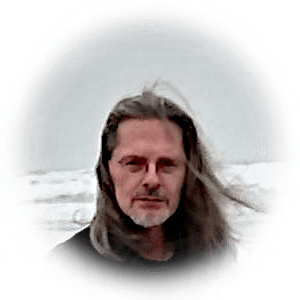Can We Know Better?
Yes. Should We?
For every oil baron denying the reality of human-caused climate change, there are several thousand climate scientists who have proven it and continue to gather data and to refine their analyses.
For that same single profiteer, there are hundreds of millions of normal people who trust the science behind it and are becoming increasingly vocal in their opposition to the proven destructive actions of fossil fuel production and consumption.
The shouts of this majority are finally being heard and we are getting better, not worse, as a result. For example –
- There are money-making industries catering to low-carbon footprint products, such as: electric and hybrid cars, solar and wind power, and just lately, carbon capture technology.
- More money was made on green energy than on fossil fuel energy globally last year [2018 – Ed.]. I bet you didn’t hear that, did you.
That sounds like a lot more good than bad, to me.
As long as we are angry at injustice, we will continue not only to be more just ourselves, but we will continue to push for more justice for others.
Pattern is clear.
⁂
Why are we harder on ourselves than we are on other species?
Excellent question.
Consider: we’re hardly the first species to wreak havoc in a new environment. Most of the species extinctions in history (those not the result of natural disasters) have been caused by other, more adaptable species.
Evolution is a brutal competition, always has been.
Why are we the only ones who don’t get a pass on this?
Because we’re supposed to know better?
Are we?
We can know better, but that’s because of what evolution has given us—a better than average ability to reason.
Is ‘can’ synonymous with ‘should’?
No.
This is an important distinction. If we only can know better, no blame attaches. In other words, we are capable of knowing better, we just haven’t managed it yet.
An example.
No one should consider it a moral failing if a student has difficulties learning something new.
If, however, a graduate—a physician say—makes a mistake, we do assign blame because no mistakes should be made by someone we rightfully expect to know better.
What’s the difference?
In the case of the physician, an authority vouches for said physician’s competence by issuing and renewing a licence. The student, though, is in the process of learning and is expected to stumble along the way.
So, should we know better?
I don’t think so, for the narrative that says we should know better is that of the licensing authority.
Who is there to judge our fitness? Are we still learning or are we supposed to know already?
It is the religious point of view that says we should know better.
The agreement of some liberals is a tacit admission that there is, or should be, a judging authority.
As far as religion is concerned, I don’t think I need to say who this authority is.
I suspect that many of my fellow liberals are setting themselves up as the authorities in this regard.
We humans have been immersed in this toxic condemnation of our natural selves for centuries.
Most liberals have shed the religion but—as with our prurient attitudes—cling to the diseased view that we are a fallen, corrupt species.
But, as playwright Robert Ardrey wrote, ‘we were born of risen apes, not fallen angels.’
In most cases, we simply do not know better—yet.
⁂
Take that oil baron I mentioned earlier.
Is he evil?
No, he’s ignorant. Perhaps (probably) deliberately so. You see, he functions in a world where flowing oil is a good thing for him, his family, his friends, the economy, &c.
He’s not plotting the death of the environment so that he can feather his nest. He consciously ‘knows’ that that will not happen.
Like most of us, he has biases. In his case, he has a specific bias that prevents him from assessing or even accessing the evidence that contradicts his worldview.
His profession does gross harm to the world and will harm his own descendants, but he cannot see this, because of his biases.
None of this is blameworthy.
He’s doing his best by most definitions of the term. Yet, he can do better than he thinks he can.
He deserves encouragement, not condemnation.
⁂
When we did away with hell, we did away with eternal punishment for evil-doers.
Now, we need to do away with the mentality that there should be punishment.
Punishment does not make anyone behave better. It exists as an idea and a reality only to make some of us feel better. It serves no other purpose.
We are not good.
Nor are we evil.
We are human—a natural product of a natural environment.
We are trying to become better than we were.
Most of the time, we succeed.
We need to give ourselves a break.

